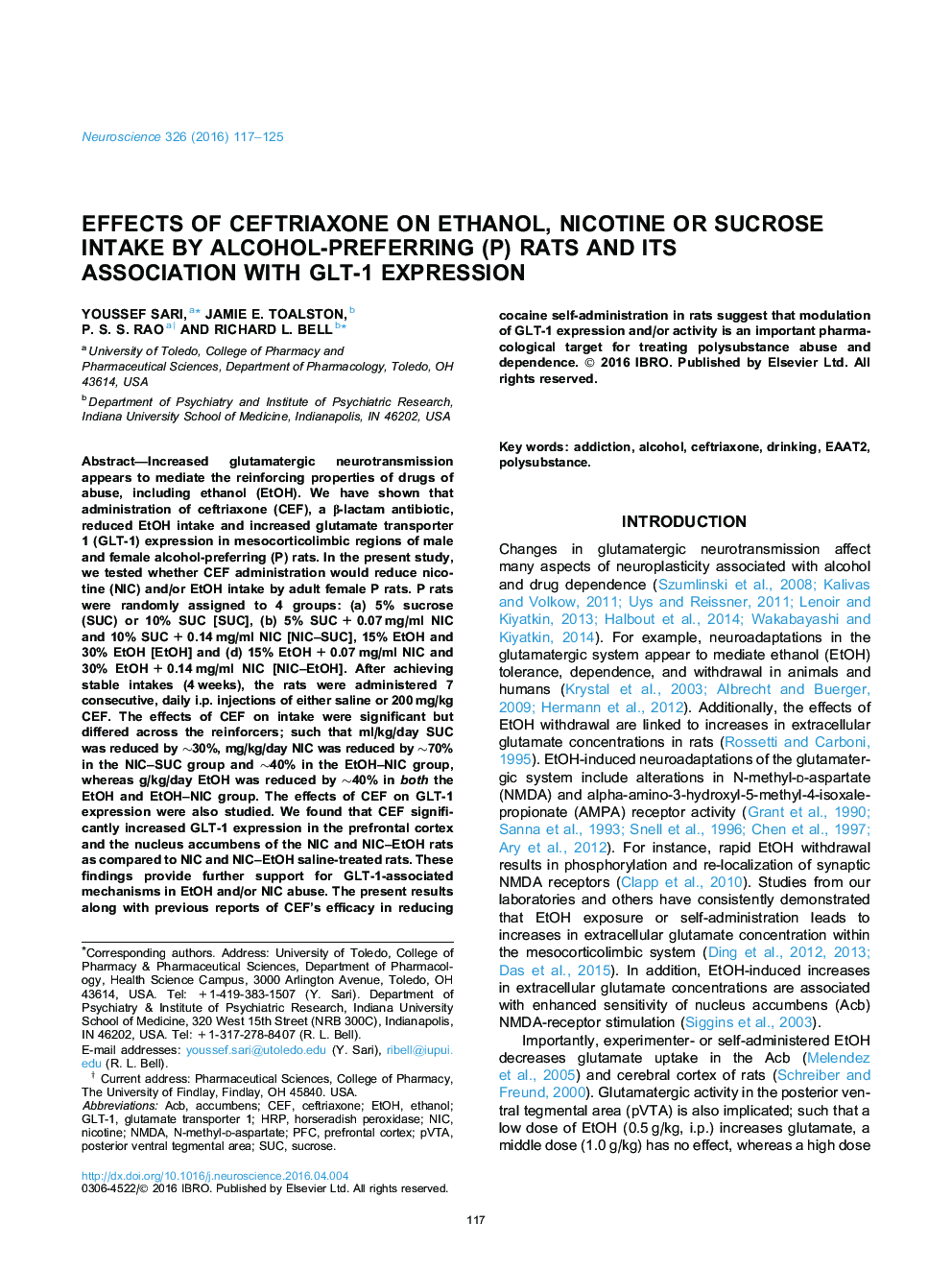| Article ID | Journal | Published Year | Pages | File Type |
|---|---|---|---|---|
| 6270990 | Neuroscience | 2016 | 9 Pages |
Abstract
Increased glutamatergic neurotransmission appears to mediate the reinforcing properties of drugs of abuse, including ethanol (EtOH). We have shown that administration of ceftriaxone (CEF), a β-lactam antibiotic, reduced EtOH intake and increased glutamate transporter 1 (GLT-1) expression in mesocorticolimbic regions of male and female alcohol-preferring (P) rats. In the present study, we tested whether CEF administration would reduce nicotine (NIC) and/or EtOH intake by adult female P rats. P rats were randomly assigned to 4 groups: (a) 5% sucrose (SUC) or 10% SUC [SUC], (b) 5% SUC + 0.07 mg/ml NIC and 10% SUC + 0.14 mg/ml NIC [NIC-SUC], 15% EtOH and 30% EtOH [EtOH] and (d) 15% EtOH + 0.07 mg/ml NIC and 30% EtOH + 0.14 mg/ml NIC [NIC-EtOH]. After achieving stable intakes (4 weeks), the rats were administered 7 consecutive, daily i.p. injections of either saline or 200 mg/kg CEF. The effects of CEF on intake were significant but differed across the reinforcers; such that ml/kg/day SUC was reduced by â¼30%, mg/kg/day NIC was reduced by â¼70% in the NIC-SUC group and â¼40% in the EtOH-NIC group, whereas g/kg/day EtOH was reduced by â¼40% in both the EtOH and EtOH-NIC group. The effects of CEF on GLT-1 expression were also studied. We found that CEF significantly increased GLT-1 expression in the prefrontal cortex and the nucleus accumbens of the NIC and NIC-EtOH rats as compared to NIC and NIC-EtOH saline-treated rats. These findings provide further support for GLT-1-associated mechanisms in EtOH and/or NIC abuse. The present results along with previous reports of CEF's efficacy in reducing cocaine self-administration in rats suggest that modulation of GLT-1 expression and/or activity is an important pharmacological target for treating polysubstance abuse and dependence.
Keywords
Related Topics
Life Sciences
Neuroscience
Neuroscience (General)
Authors
Youssef Sari, Jamie E. Toalston, P.S.S. Rao, Richard L. Bell,
